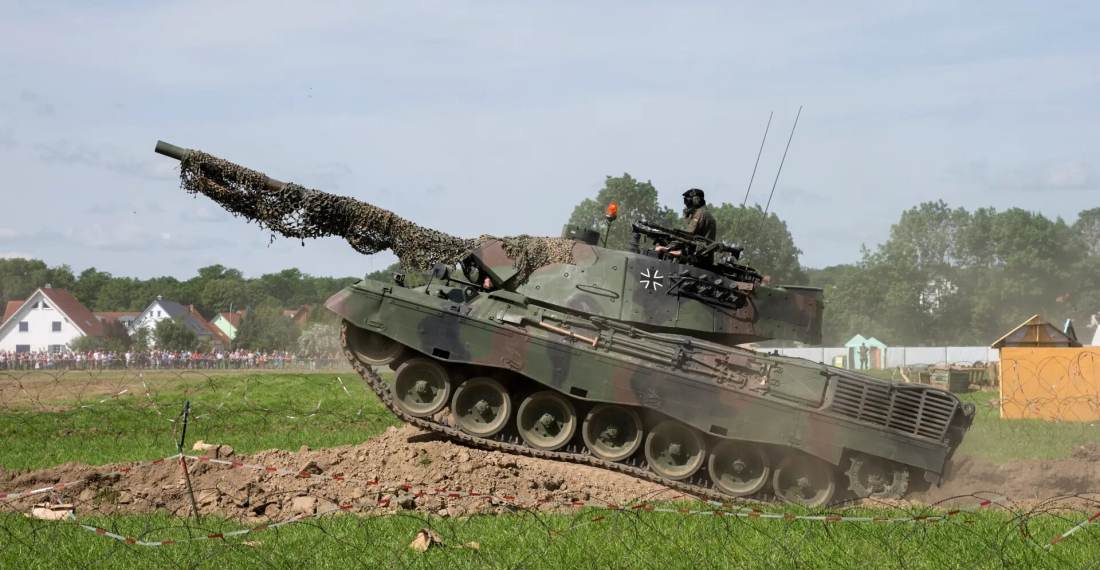The German Federal government has approved the delivery of 178 Leopard 1 tanks to Ukraine, according to German government sources cited by German outlet Der Spiegel.
The Tuesday 7 February decision concerns deliveries of Leopard 1A5 tanks from a number of countries that have pooled their industry stocks, which the German government has now approved.
Concurrent to the announcement, it was revealed that the German Defence Minister Boris Pistorius had gone to Kyiv on a surprise visit, with his Ukrainian counterpart Oleksii Reznikov tweeting a picture standing alongside him posing with a model Leopard 2 tank, with the caption, "The «first» Leopard 2 has arrived in Kyiv"
There have however been reports of difficulties procuring the correct ammunition for the Leopard 1 tanks, and many of the tanks will likely have to undergo refurbishment before they are ready for deployment. The original Spiegel article said that although some tanks would arrive in the summer, most would only arrive in Ukraine in 2024.
Despite having long asserted that they would not send main battle tanks to the Ukrainian armed forces, two weeks ago the German government finally relented amid mounting pressure from global allies who had committed to sending tanks to Ukraine.
On 25 January Chancellor Olaf Scholz announced that his government would not only send 14 of the German-made Leopard 2 tanks to Ukraine, but also approve the re-export of the tanks from other countries. Ukraine had long requested that the Leopard 2 tanks be sent to them as they were specifically designed to compete against the T-90 tanks that Russia has been using in its invasion of Ukraine.
source: commonspace.eu with agencies
photo: Der Spiegel






